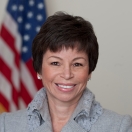
Yesterday, I had the pleasure of speaking at the Technology Inclusion Summit, hosted by Chief Technology Officer Todd Park, the Office of Science and Technology Policy, and the Level Playing Field Institute. It was an amazing gathering of private and public partners who are united in their efforts to expand opportunities for training, education and jobs in technology.
President Obama has always believed that technology is an essential part of growing our economy, creating jobs and remaining globally competitive. The President continues to be committed to encouraging the entrepreneurial spirit in our country, starting with setting a goal of 1 million Science Technology Engineering Math (STEM) graduates over the next decade. This effort also means that we need to collectively act to knock down any barriers that stand in the way.
Last August, during the Tech Inclusion Roundtable, participants came up with some great private-sector initiatives to help drive innovation across every community. Whether it was pioneering new educational tools for students of all ages, bringing technical training to underrepresented communities, or mobilizing tech company CEOs to establish mentoring programs for young people, every one of these initiatives and ideas has the potential to shape America’s future.
It’s not enough to simply innovate and stay competitive-- we must do so in a way that’s as inclusive, diverse, and dynamic as the makeup of our country.
I am especially excited about how we can attract talented individuals from groups that are historically underrepresented in STEM fields – including women.
Even though women fill close to half of all jobs in the U.S. economy, they hold less than 25 percent of STEM jobs. This gap is even greater when it comes to computing-related occupations, where the percentage of female employees has decreased over the past decade.
This tells us that we must do more to encourage women and girls to pursue careers in these fields, as well as individuals from other underrepresented groups. And one story continues to inspire me in this area.
Last year, Brittany Wenger, a 17-year old student from Florida, won the Google Global Science Fair grand prize. Brittany was recognized for her development of a web-based application known as a “neural network,” that can help to more accurately detect breast cancer.
Not only is Brittany a role model to other girls considering jobs in computer programming and biomedical research, but she also has produced a lifesaving technology that could help women across the globe.
We must give more women like Brittany the opportunity to make historic discoveries. Events such as the Tech Inclusion Summit help more women and girls, minorities and youth to not only spark a spirit of innovation, but to keep it growing.


